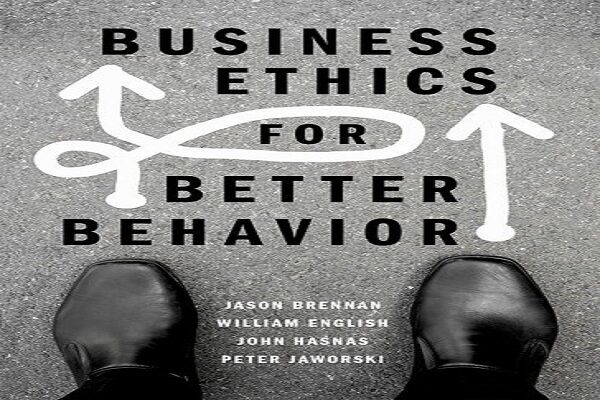TEHRAN(Bazaar) – “Business Ethics for Better Behavior” is a book written by Jason Brennan, William English, John Hasnas, and Peter Jaworski and published by Oxford University Press.
“Business Ethics for Better Behavior” concisely answers the three most pressing ethical questions business professionals face: What makes business practices right or wrong?; Why do normal, decent businesspeople of good will sometimes do the wrong thing?; and How can we use the answer to these questions to get ourselves, our coworkers, our bosses, and our employees to behave better?
Bad behavior in business rarely results from bad will. Most people mean well much of the time. But most of us are vulnerable. We all fall into moral traps, usually without even noticing.
“Business Ethics for Better Behavior” teaches business professionals, students, and other readers how to become aware of those traps, how to avoid them, and how to dig their way out if they fall in. It integrates the best work in psychology, economics, management theory, and normative philosophy into a simple action plan for ensuring the best ethical performance at all levels of business practice. This is a book anyone in business, from an entry-level employee to CEO, can use.
Following is the interview with Professor Jason Brennan:
Jason Brennan is the Robert J. and Elizabeth Flanagan Family Professor of Strategy, Economics, Ethics, and Public Policy at Georgetown University. He is the author of fifteen books, which have been translated twenty-three times into thirteen languages, including “Cracks in the Ivory Tower and Injustice for All”. He specializes in the intersection of politics, philosophy, and economics.
Bazaar: What has been your main question in this book?
Brennan: Why is it that ordinary people of good will, people who generally want to act ethically, so often nevertheless make mistakes and act wrongly? How can we manage ourselves, our colleagues, our subordinates, and our organizations to make it more likely people will act rightly?

Bazaar: What Hypothesis did you use to answer this question? What is your central argument?
Brennan: Moral wrongdoing principally comes from three sources: 1. Moral confusion: People sometimes cannot determine what is right or wrong in particular situations because they lack the skill to reason through the problem. 2. Incentive problems: People often face perverse incentives which reward them for acting badly and punish them for acting rightly. 3. Psychological biases: We have built-in psychological flaws, such as a tendency to act on autopilot, a tendency to be blind to moral problems, and a tendency to conform to others behavior, which cause us subconsciously to make bad choices. The book provides the evidence needed to demonstrate these problems exist and then offers a wide range of strategies to mitigate them.
Bazaar: What was the necessity of writing this book?
Brennan: Most business ethics books focus entirely on philosophical issues or on discussing corporate social responsibility campaigns. We instead wanted to write a book that would reveal to businesspeople what sorts of moral traps they might face and which would arm them with tools to avoid or overcome those traps.
















نظر شما